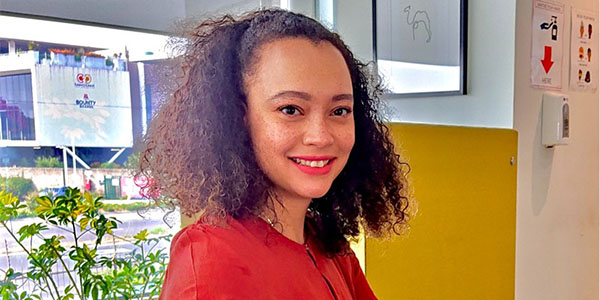‘Jet lag’ discovered in body clocks of people living with HIV in rural South Africa
- Wits University
People living with HIV have a significantly delayed internal body clock consistent with jet lag symptoms, found a study by SA and UK universities.
The findings may explain some of the health problems experienced by people living with HIV and guide research towards improving their quality of life.
The study, titled Delayed circadian rhythms in older Africans living with human immunodeficiency virus (HIV), was published in the Journal of Pineal Research.
Researchers from Wits University and the University of Cape Town in South Africa, and Northumbria University and Surrey University in the UK, studied people aged 45 years and above living in South Africa’s Mpumalanga province, where nearly one in four people is living with HIV. As such, the infection is endemic and does not associate with any difference in lifestyle.
The researchers found that physiological daily rhythms, as measured by the hormone melatonin, were delayed by more than an hour on average in HIV positive participants. Their sleep cycle was also shorter, with researchers noting that the sleep of these participants started later and finished earlier.
This suggests the possibility that HIV infection may cause a circadian rhythm disorder similar to the disruption experienced in shift work or jet lag – the extreme tiredness and other physical effects experienced by a person after a long flight across different time zones.
A circadian rhythm, or circadian cycle, is a natural, internal process that repeats roughly every 24 hours and regulates behavioural rhythms such as the sleep-wake and feeding cycle, and endogenous [internal] biological rhythms such as temperature, hormone secretion, and cell receptor expression.
Dr Karine Scheuermaier, senior author of the study and an Associate Professor in the Sleep Laboratory in the Brain Function Research Group in the School of Physiology at Wits University, says:
“This ‘jet lag’ is very similar to the risk profile observed in shift workers. Understanding and mitigating this disruption may be an important step towards helping people living with HIV live healthier lives.”
The authors believe that this body clock disruption may contribute significantly to the increased burden of health problems that people living with HIV are experiencing despite successful antiretroviral treatment, such as an increased risk of cardiovascular, metabolic, and psychiatric disorders.
Kirsten Redman, co-first author of the study and a PhD candidate in the Wits Sleep Laboratory, says: “We realise the impact that this can have for people living with HIV. These disruptions are known to affect the cardiovascular system and correcting them may help better control cardio-metabolic disease risk in this cohort.”

South Africa has the fourth highest rate of HIV prevalence in the world, and researchers believe there is a strong need for further funding to identify whether similar disruption to the body clock is experienced by younger people living with HIV in other countries.
“The participants [in South Africa] living with HIV essentially experience the one-hour disruption associated with switching to daylight savings time, but every single morning. This happens in spite of the fact that essentially everybody is exposed to the same light-dark cycle,” says Professor Malcolm von Schantz of Northumbria University, corresponding author of the publication.
“Our findings have important potential implications for the health and wellbeing of people living with HIV, especially given the well-established relationships between disrupted circadian rhythms and sleep deprivation.”
Co-author Dale Rae, of the University of Cape Town, agrees: “This is a great example of the importance of studying sleep in people living in Africa, and demonstrates how findings from this research can also be relevant to people anywhere in the world.”
Dr Xavier Gómez-Olivé, co-author of the article, is based at the study site in Mpumalanga at the SA Medical Research Council/Wits Rural Public Health and Health Transitions Research Unit (Agincourt) in the School of Public Health at Wits. He says, “Our findings identify an urgent research topic. The next step must be to establish if the same body clock disruption exists in people living with HIV who are younger and who live in other countries.”
The research was performed within the HAALSI (Health and Ageing in Africa: a Longitudinal Study of an INDEPTH Community in South Africa) cohort of the MRC/Wits Agincourt Research Unit. The research was funded by a Newtown grant to Dr Xavier Gómez-Olivé and Professor Malcolm von Schantz from the Academy of Medical Sciences.

